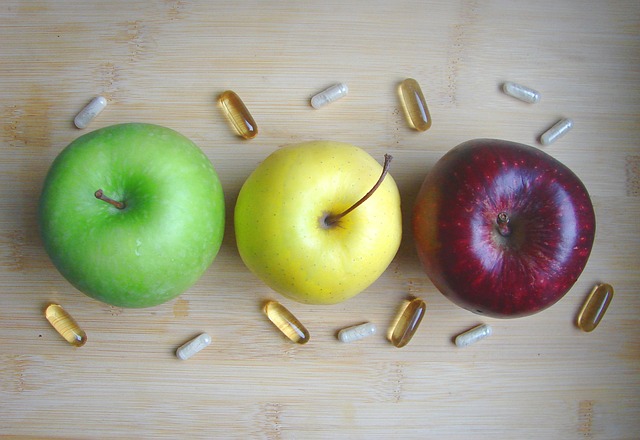If you think popping a multi-vitamin or vitamin C tablet daily will prevent you from getting a chronic illness, think again. While nearly 50% of Canadians and over 65% of Americans take vitamins, minerals, antacids or other nutritional supplements, most science does not support their use.
In fact, some high-dose nutritional supplements including beta-carotene, vitamin E, and vitamin A are only beneficial in those diagnosed with a nutritional deficiency. If anything, those supplements may actually be harmful to our health.
Foods high in beta-carotene (carrots, spinach, broccoli, and other greens), on the other hand, have been linked with cancer reduction. According to the National Cancer Control Council, “Foods containing carotenoids are associated with a probable reduced risk of lung, mouth, pharynx, and larynx cancer. Dietary β-carotene probably reduces the risk of esophageal cancer and is unlikely to have a substantial effect on the risk of prostate and non-melanoma skin cancers.”
My “snake oil radar” often goes up when I read claims for other supplements. Take fish oil, for example. The bottle says, “promotes heart, brain, vision, and joint health”, yet studies on omega-3-fatty acid supplements with the above claims have been inconclusive and downright “fishy.” Fish oil does lower triglycerides and may help relieve the pain of rheumatoid arthritis, but it does not reduce the risk of heart disease or slow the progression of age-related macular degeneration.
Eating fish twice per week, by contrast has been advised by the American Heart Association to lower the risk of heart disease, especially fatty fish like salmon. Fish replaces higher-fat protein sources such as beef or pork and has been linked with a reduction in heart disease.
Multivitamins often make blanket claims promoting “fabulous overall health, due to antioxidants vitamins C and E to fight against free radicals” while in reality, studies on people taking multi-vitamins do not support their use. Foods high in vitamin C (berries, citrus fruits, melon, green leafy vegetables, broccoli, cabbage, peppers, and tomatoes) have been found to reduce the risk of up to 14 cancers, most notably in the gastrointestinal tract.
Dr. Stranges and his colleagues discovered that selenium supplements could not help prevent diabetes, even in areas where selenium intake from various foods was low. His study was comprised of data from a randomized clinical trial done in Denmark and was published in Diabetes, Obesity and Metabolism.
Lots of scientific research supports healthy lifestyle changes to help people age gracefully and prevent major illness. These include improving diet quality, adding more physical activity, not smoking, having good sleep hygiene, and managing stress.
While many people consider supplements innocuous, they may actually raise the risk for disease. A randomized clinical trial done in the US found that high dose selenium supplements in the midst of adequate dietary intake, increased the risk of Type 2 diabetes. Including a variety of fruits and vegetables in your diet is a more reasonable way to improve health instead of using supplements.
Selenium-enriched foods as well as selenium supplement use in the US and other Western countries has increased because of the assumption that selenium and other antioxidant supplements may lower the risk for disease. This may have negative effects on public health. Selenium supplementation could exacerbate the high rate of newly-diagnosed diabetes as well as heart disease.
In addition, intakes of selenium vary between country to country based on selenium content of plant foods in different regions. Most research has been done in North American individuals where selenium status is higher than Europe. Many clinical trials on expensive supplements have been conducted with disappointing and even harmful results (ie beta-carotene in smokers increasing the risk for lung cancer).
So far, trial evidence for taking supplements is not sufficient to advise regular use of them. Most supplements do not prevent chronic illness or increase longevity and should be avoided. This is particularly true for the overall population who do not suffer from micronutrient deficiencies, yet are the traditional users of supplements in the US, Canada, and other countries.
Rather than focusing on well-nourished populations, programs that emphasize increased consumption of plants to improve dietary habits in disadvantaged, high-risk population subgroups should be encouraged.
From a public health perspective, funding should be allocated to policies, campaigns, and interventions that improve dietary patterns in the general public and disadvantaged population subgroups that are at risk for chronic disease. Interventions that increase consumption of plant-based foods containing the required vitamins and minerals for optimal health ought to be a priority.
Below are ways dietitians and other healthcare providers can encourage plants over pills to meet nutrient needs.
- Add peppers, tomatoes, spinach, or broccoli to eggs to boost vitamin C intake. Citrus fruit, strawberries, melon and pineapple also provide vitamin C.
- Add chopped nuts or seeds to breakfast cereal or salads to boost selenium intake and vitamin E.
- Encourage whole grains for magnesium, zinc, vitamin E, and fiber.
- Include dark orange fruits and vegetables to boost beta-carotene intake. Sweet potatoes, cantaloupe, peaches, mangoes, and nectarines are all great sources
- Enjoy fatty fish such as salmon twice per week for omega-3-fatty acids.
By Lisa Andrews, MEd, RD, LD
Copyright foodandhealth.com, reprinted with permission.

